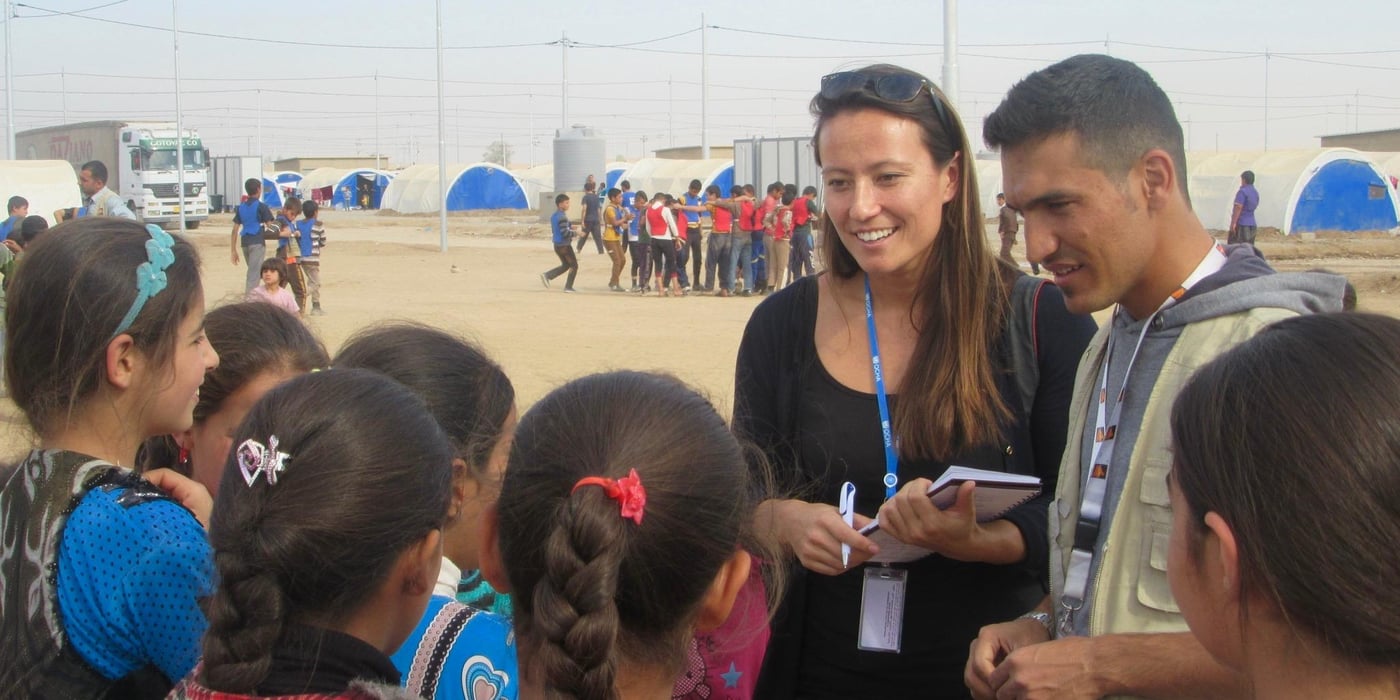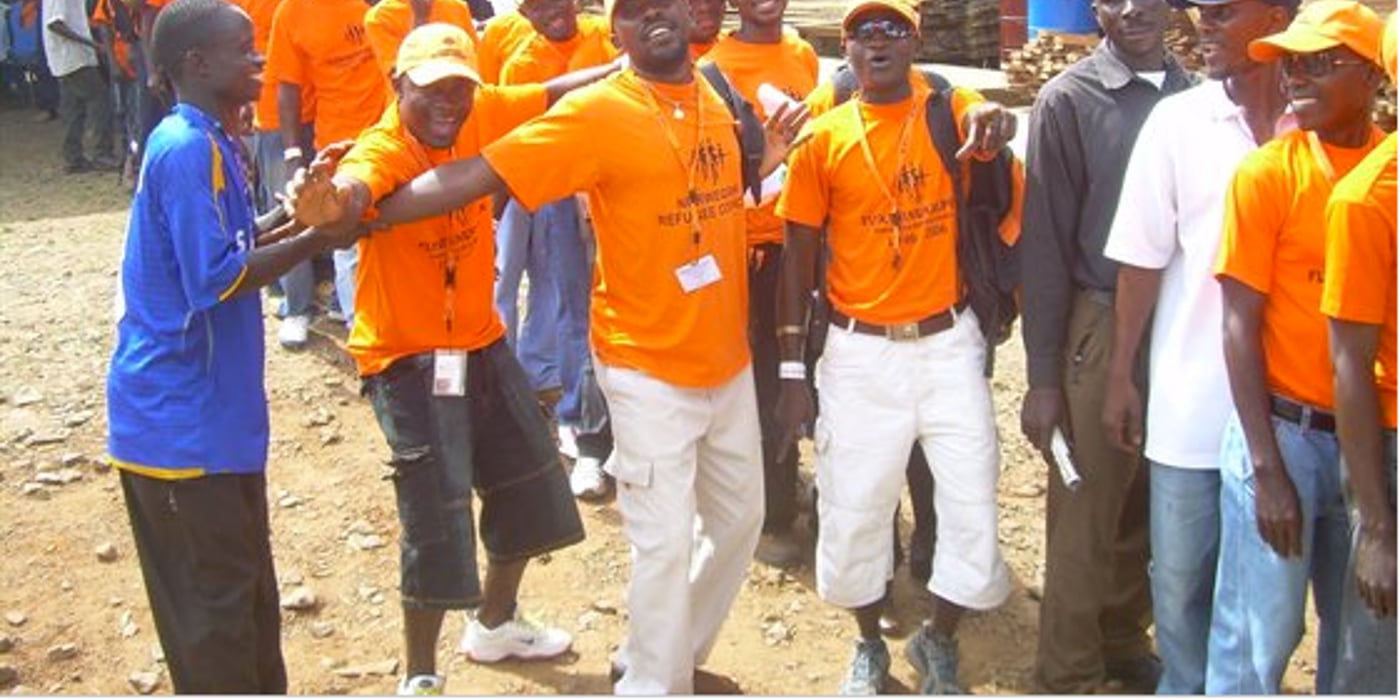
“We arrived in a broken country. Liberia was in the midst of the enormous humanitarian crisis caused by years of disastrous civil war. Then followed the first critical years of recovery, reconciliation and rebuilding the country”, says Sheila Donaghy.
June 30th, she closed the doors to the facilities that have been housing the NRC office in Liberia's capital Monrovia for the last time.
1.8 million displaced by civil war
From 1989 to 2003, Liberia was embroiled in a civil war which resulted in approximately 200,000 deaths, one million internally displaced people, more than 850,000 refugees in neighbouring countries and a heavily devastated national infrastructure and economy.
Following the signing of the Accra peace agreement in 2003, NRC established humanitarian response operations to provide protection and assistance for the return and reintegration of refugees and internally displaced people. Big challenges lay ahead of the whole nation.
“The country had to be rebuilt from the ground at the same time as the people were to recover and go through the processes of reconciliation and democracy building”, says Donaghy. 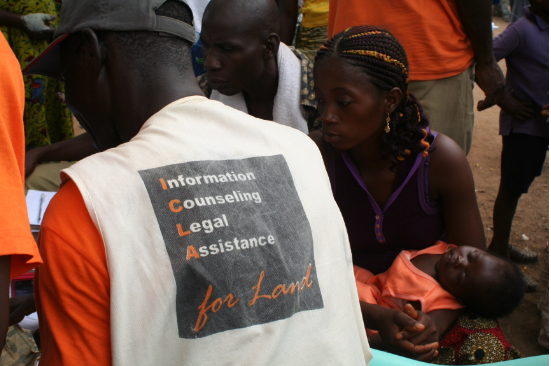
Hard work, remarkable progress
It has been years of big challenges, hard work and efforts in all sectors, of the people and the authorities, as well as the aid actors who have been here to assist Liberia in this crucial time.
“But first and foremost, we have seen progress and great achievements,” says Donaghy, commending on the way Liberia, step by step, has paved its way out of the post war humanitarian crisis and lived through the first, critical years after the war:
“Over these twelve years it has transformed itself from a failed state to a country with a steady pace on the path to development, democracy and lasting peace. The country has made remarkable progress in rebuilding its institutions and economic recovery”. 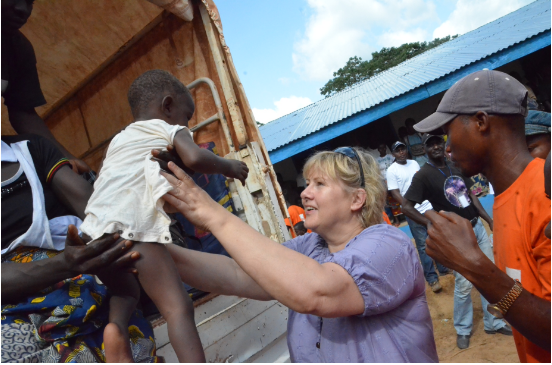
Exit postponed
NRC had initially planned to close down its operations in Liberia at the end of 2010, however with the post- election conflict in neighboring Cote d’Ivoire resulting in an influx of refugees, NRC put exit plans on hold and responded to the emergency.
By the end of 2013, when the refugee situation had stabilized and other actors were taking over, NRC again started to plan for the closure of the programme by 31 December 2014.
Throughout 2014 there was a major down-sizing towards exit.
“Then by the second half of 2014 the Ebola Virus Disease outbreak was having a devastating effect on so many families and communities, and NRC suspended closure in order to contribute in the fight against Ebola”, explains Sheila Donaghy.
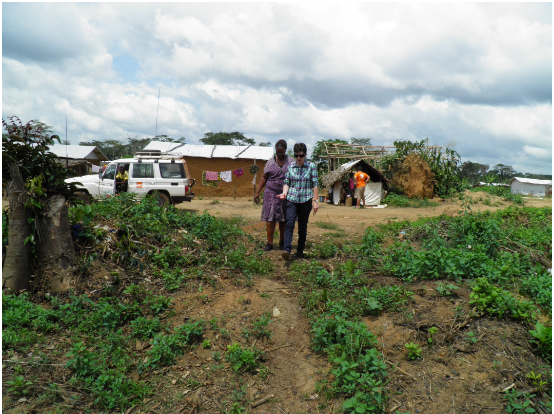
“In many ways it feels sad and wistful to shut down and leave”, she admits.
“After all these years Liberia has a special place in many hearts in NRC. Still, we are glad to see that Liberia has entered a new phase where development is the key towards a sustainable future” says Donaghy, pointing out that “NRC is a humanitarian organisation with a mandate to respond, stay and deliver aid to those who need it the most when there is a humanitarian crisis”.
“In countries of operation, once the displacement situation has stabilised, NRC exits as the needs are simply better served by longer term development actors”.
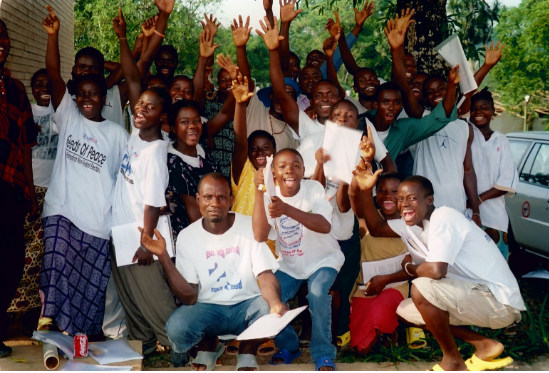
Youth Education Package (YEP) has been an important part of NRC Liberia's program activities over the years. Educating and empowering the young generation has been given high priority in post war Liberia. Picture taken at graduation of a YEP class in Tubmanburg, Liberia in 2006. Photo: NRC
Optimistic about the future
Donaghy is optimistic about the future perspectives of Liberia.
“There are still challenges and lots of work to be done. But Liberia today is a country full of experts who will ensure that the country continues to hold a steady course in the right direction, and work to ensure the development and opportunities for all citizens”, she concludes.
All NRC activities has been run in close cooperation with the Liberian authorities and local partners.
“I would like to take this opportunity to thank the Liberian governments and authorities, local partners, and not least, all national staff who have worked for NRC in these years”, says Sheila Donaghy.
The Norwegian Refugee Council wishes to extend its profound appreciation, thanks and gratitude to the Government of Liberia, donors, partners, community members and staff who have so graciously hosted and provided the NRC will all the means and support to render humanitarian assistance to displaced and host communities since 2003.
NRC’s core activities in Liberia
- Education
- County Information Management and Monitoring (CIMM)
- ICLA (Information, Counselling & Legal Assistance – land tenure and land dispute resolution)
- Gender Based Violence programme (GBV)
- Ivorian Refugee Response Programme (IRRP)
- Ebola Response


